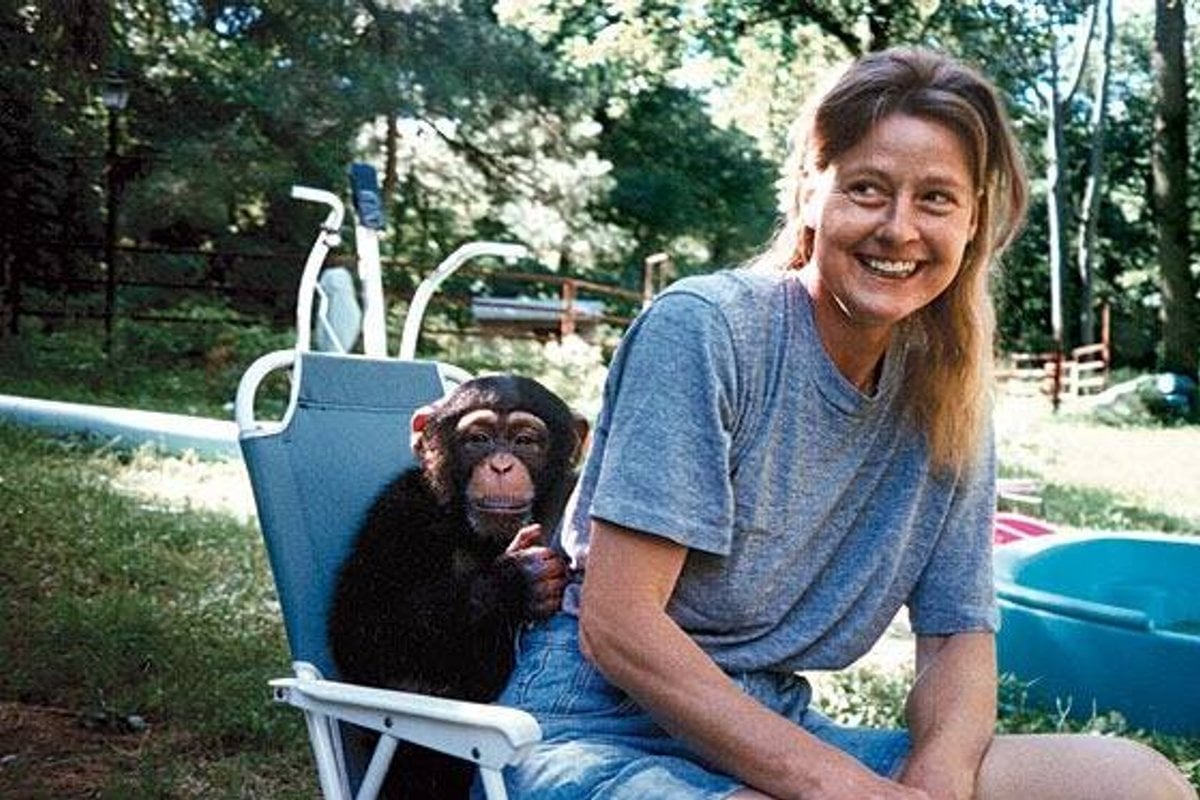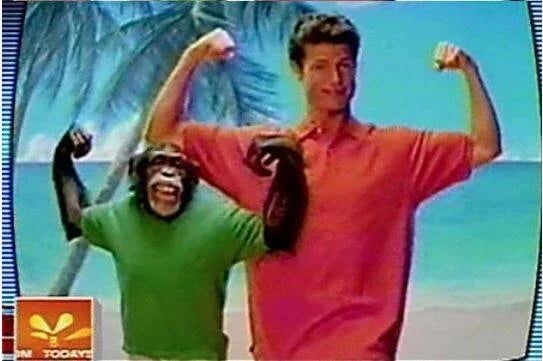
Travis the chimpanzee had a traumatic start to life - and sadly, that was the way his life ended too.
Born in a chimpanzee sanctuary on October 21, 1995, Travis was taken from his mother, Suzy, when he was just three days old. Known for their close-knit sense of community and family, this would have been very distressing for the young primate and his mother.
Later, in 2001, Suzy was shot and killed trying to escape the sanctuary.
Travis was sold for $50,000 to married couple Jerome and Sandra Herold. They named him Travis after Sandra's favourite singer, Travis Tritt, and they treated the young chimpanzee as though he was one of their children (the Herolds also had a daughter).
Raised by humans, Travis likely thought he was a human too. He play-wrestled with the family, ate with them, brushed his teeth, dressed himself, watched TV, and opened doors. He reportedly drank wine and loved ice-cream. He knew how to log onto the computer and, remarkably, knew how to drive as well.
Being so clever, friendly, and socialised, Travis also appeared in a number of television shows like The Maury Povich Show and The Man Show, and in advertisements, including several spots for Coca-Cola.
 Travis in a commercial. Image: New York Magazine.
Travis in a commercial. Image: New York Magazine.
